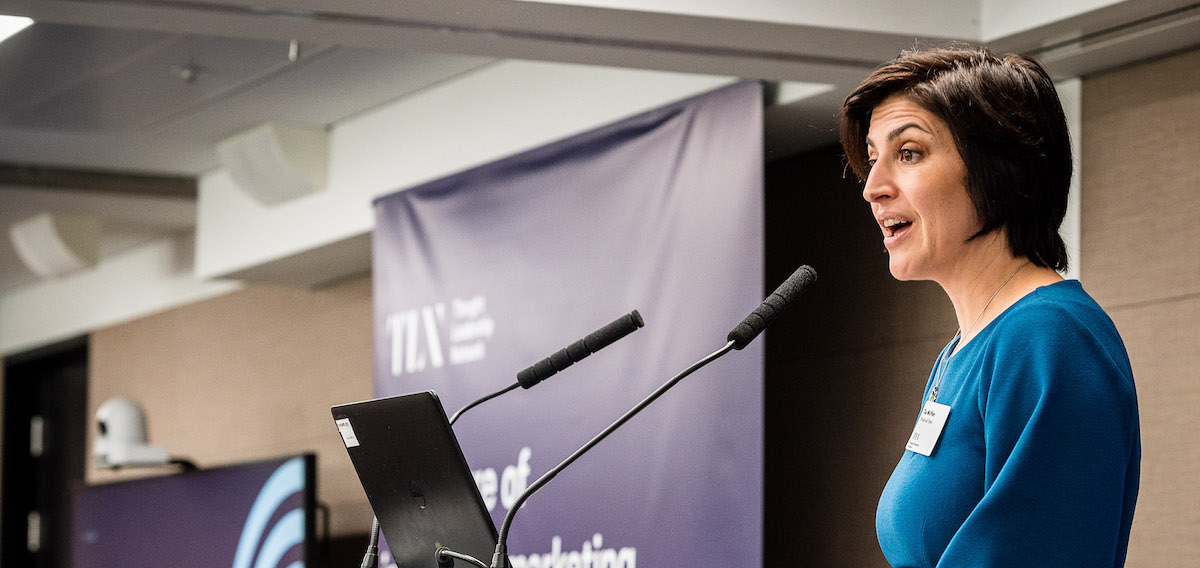Take a stance: Thought leadership in the age of Greta Thunberg
Sonja Caymaz
Sustainability, activism and climate change all hit the headlines in 2019, and will continue to impact the global political and business agendas in 2020 and beyond.
And the news is dire. Climate change-related issues dominate both the short- and long-term risk outlooks, according to the World Economic Forum’s Global Shapers Community. As the WEF Risk Report 2020 suggests, the hope that our global system will ‘snap back to normal’ is futile.
Yet very few multinationals have altered their brand or messaging over the past few decades, and only a small number of industry leaders have come out to say they will aim for full transparency on the full environmental impact of their business. The vast majority seem paralysed by uncertainty – or are blissfully unaware.
Heads in the sand?
Research by wealth managers Charles Stanley indicates that four in 10 UK investors have never heard of Extinction Rebellion, and half said they didn’t know about Greta Thunberg’s global climate strike. What will their excuse be when their assets lose value following legislation that caps emissions, for instance?
Estimates for stranded assets, or value write-offs, currently amount to $900bn. Refinitiv reveals that a ‘carbon correction’, whereby policymakers tax carbon emissions realistically, will cost the global economy – especially sectors such as construction materials, utilities, metals and mining, and airlines. According to Refinitiv’s analysis, if carbon taxes are set at $75/tonnes of CO2 – the level the IMF has said will help to limit temperature increases to two degrees –as much as 13% of revenue could be at risk for businesses with the greatest exposure.
Why business has to act
Developing a low-carbon strategy and addressing climate change risks is an ethical priority; it is also, crucially, a business imperative. A report by TIC Council, an international association representing testing, inspection and certification companies, shows that 55% of senior executives across Europe, Asia and the US view climate change as a high risk, with low preparedness levels often hidden in supply chains. More than half also said they feel less resilient against climate change-related risks than they did in the previous year. Natural disasters had a $165bn impact on governments as well as businesses across the world in 2018, according to the WEF report.
With so much at stake, how can companies get ahead of the game?
It’s difficult to plan long-term in volatile times, but the window of opportunity to take a stand on climate change and responsibility is closing – and it’s closing fast.
The energy transition is upon us – even Big Oil has taken note. DNV GL’s 2020 Industry Outlook for the Oil and Gas Industry finds that 40% of oil and gas professionals expect their organisations to boost investment in decarbonisation in 2020, up from just 27% in 2019. The number looking to maintain or to increase investment in renewable energy projects has also risen sharply, from 54% to 71% in the last year alone.
Early converts such as Danish company Ørsted, are already reaping the rewards of their offshore wind portfolios. Others are trying to adjust to the Energy Transition in other ways: Shell, and most recently Italian oil major Eni, have for instance committed to reducing ‘scope 3’ emissions – indirect emissions deriving from the end use of our products.
Society leads
These energy companies are recognising that in an age of civic engagement, businesses need bold leadership, a purpose that takes into account the greater good and a strong corporate message.
Rapid and fundamental change is ahead, and all companies should expect more of it over the next decade. This trend will span all sectors but is most critical to those facing consumers. The Sustainable Food Systems in Europe study we conducted with agriscience company Corteva shows that 56% of Europe’s farmers believe that consumers will demand more sustainably produced foods, and 42% have already changed their planning as a result. The same is happening further down the supply chain: a recent ING survey shows almost four in every 10 consumers have stopped buying from food and beverage companies they deem to be environmentally unfriendly.
What does it all mean for thought leadership on climate change?
In the people-powered age of Greta, the number one rule of impactful thought leadership is to not bury your head in the sand. Our view? Unless you acknowledge the burning political issues of the day, you risk seeming out of touch.
In times of upheaval and radical change, clever, research-led content campaigns such as Corteva’s can provide a firm understanding of trends and anchor corporate messages with authentic voices on business transformation, sustainability and climate change risk.
The question of how our economy will transition to be a more environmentally friendly and considerate one is not up to Greta Thunberg to answer. It’s time for businesses big and small to take a stand, decide what kind of company they want to be and communicate that stance.
Speak to the team
We’ll help you to navigate and overcome any challenges you currently face and learn how to get more out of your content.
Book a meeting
About the author: Sonja Caymaz
Sonja is our group editor for energy and industrials. She joined FT Longitude in 2018, spearheading the focus for the energy, healthcare and manufacturing sectors. Her expertise spans across the entire energy spectrum from oil and gas to renewables, hydrogen, electrification, e-mobility and smart city development.
Sonja has more than 10 years of experience in journalism and B2B publishing, which helps her craft innovative, insight-led thought leadership campaigns for clients, from inception to launch.
She regularly researches and writes about the energy transition, Industry 4.0, ESG and sustainability topics, and in 2021 was part of the team that won Best Use of Thought Leadership at the B2B Marketing Awards 2021 with Protolabs.
 |
Tel:
+44 (0)20 7873 4770
|
Tel:
+44 (0)20 7873 4770


